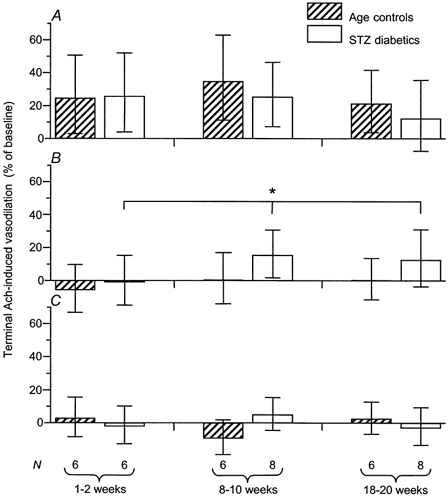Figure 8. Terminal vasodilatory responses to acetylcholine.

A, in the presence of Ringer solution. Terminal responses to acetylcholine did not decline significantly with maturation or with diabetes (controls: P = 0.5392, STZ-diabetics: P = 0.3927, both one-way ANOVA), nor did these responses differ significantly between age-matched controls and STZ-induced diabetics (P = 0.4173, two-way ANOVA). In controls, these responses represented NO- and prostanoid-dependent vasodilatation. In STZ-induced diabetic rats, the terminal responses in the older age groups were also dependent upon K+ channel activity, as shown in B and C. Blood pressure values in age-matched controls and STZ-induced diabetics were not significantly different at any age. B, in the presence of l-NNA + indomethacin (1 mm + 10−5m). Terminal responses to acetylcholine were abolished by inhibition of NOS and COX in controls, but not in STZ-induced diabetics with diabetes durations ≥ 8 weeks (*P = 0.0403, STZ vs. age-matched controls, two-way ANOVA). In the 18–20 week group, blood pressure values were significantly different between age-matched controls and STZ-induced diabetics at this point of the experimental protocol, being 105.5 ± 6.9 mmHg in controls and 121.5 ± 3.7 mmHg in diabetics. C, in the presence of TEA + l-NNA + indomethacin (10 mm + 1 mm + 10−5m). No terminal responses to ACh were found in either STZ-induced diabetics or controls after addition of TEA (P = 0.6324, STZ vs. age-matched controls, two-way ANOVA), demonstrating that the terminal ACh responses found in STZ-induced diabetics in the presence of l-NNA + indomethacin were dependent upon K+ channel activity. The data are given as means and 95 % confidence intervals. Blood pressure values in age-matched controls and STZ-induced diabetics were not significantly different at any age.
